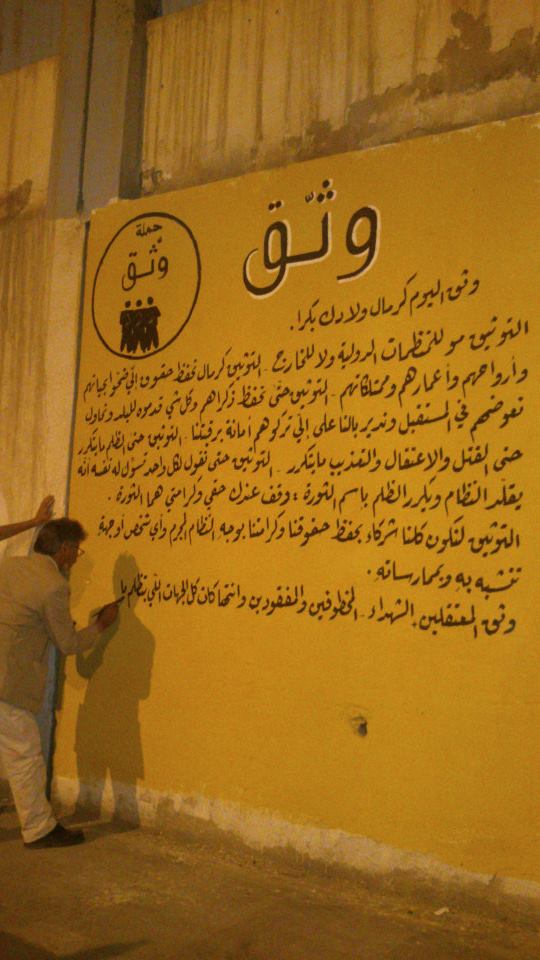Monitoring and documenting human rights violations is crucial in Syria, where a lack of accountability has allowed for the perpetuation of violent crimes. To deal with this issue, the Violations Documentation Center in Syria and the Muwatana Center for Studies and Research launched the Document campaign, in order to teach Syrians how to keep track of violations committed against them, and encourage active participants in demanding and protecting their rights. The campaign consisted of educational sessions and workshops teaching people how to properly document human rights violations.
One of the goals of Document is to show Syrians that it is not only international organizations who can take on the role of documentation. “This is for your children,” the organizers said. “We must document everything to preserve the rights of those who sacrificed their lives and their belongings. We must document to keep their memory alive, to keep track of everything they did for Syria. It is our responsibility to care for what they have left behind.”
The activists behind the Document campaign sprayed graffiti on walls, visited residents, distributed pamphlets, and held informational sessions led by lawyers. They sought to teach Syrians that it is their duty to fight for their own rights.
So what does the campaign entail? It teaches residents how to properly document the names of martyrs and missing persons, as well as the names of those responsible for the violations being committed, whether they are from the regime or the opposition.
The two-week campaign began in Raqqa on May 28, 2013. The activists hope to ultimately host a campaign in all Syrian cities, and will likely do it in Deir ez-Zor next.
In Raqqa, activists first held a workshop for activists and residents seeking to gain a basic understanding of human rights and to learn about the documentation of crimes in a professional manner.
Then, activists began covering the walls of the city with slogans related to the campaign. These messages explained to residents their rights, and encouraged them to take part. One slogan was, “Our rights are ours, they are not a gift from someone else.”
An important aspect of the campaign is that it does not target only the regime. Rather, it teaches people to demand their rights from all those taking advantage of the chaos in Syria’s transitional stage.
“We document so that oppression is not repeated,” one of the activists in charge said. “We don’t want the killing, arrest and torture to be repeated. We document so we can tell all those who are behaving like the regime, but in the name of the revolution, to stop. We document so that we can all be partners in demanding our rights and our dignity in the face of a dictatorship, and in the face of all those acting in a similar manner.”
The I Am a Revolutionary magazine, which is distributed in Raqqa, included paperwork related to the campaign with its last issue. Activists and civil society groups were given envelopes with information about the goals of the Document campaign, forms for the documentation of martyrs, detainees and missing persons, for the documentation of violations committed by an unofficial group, and for the documentation of the use of chemical or toxic weapons.




